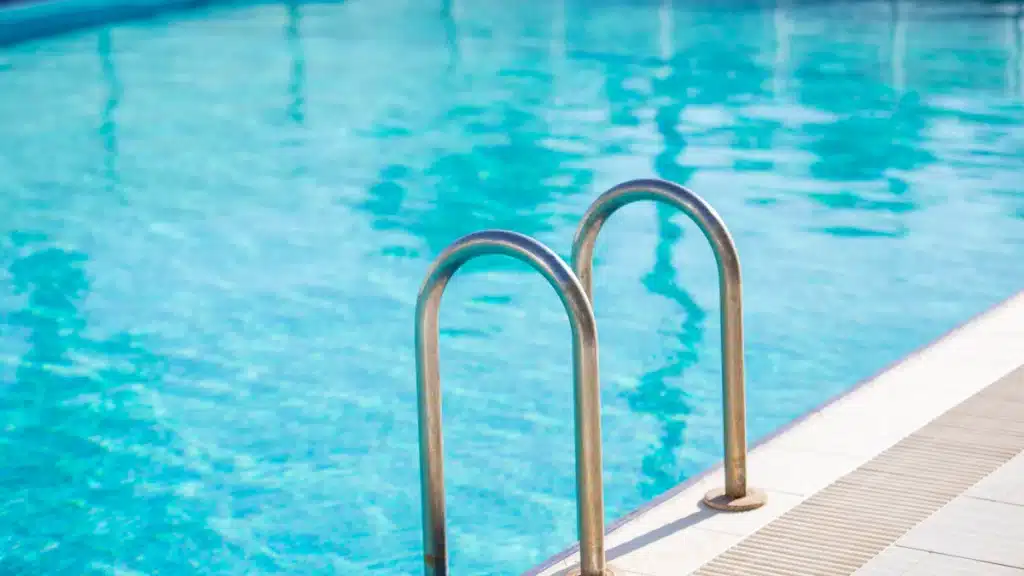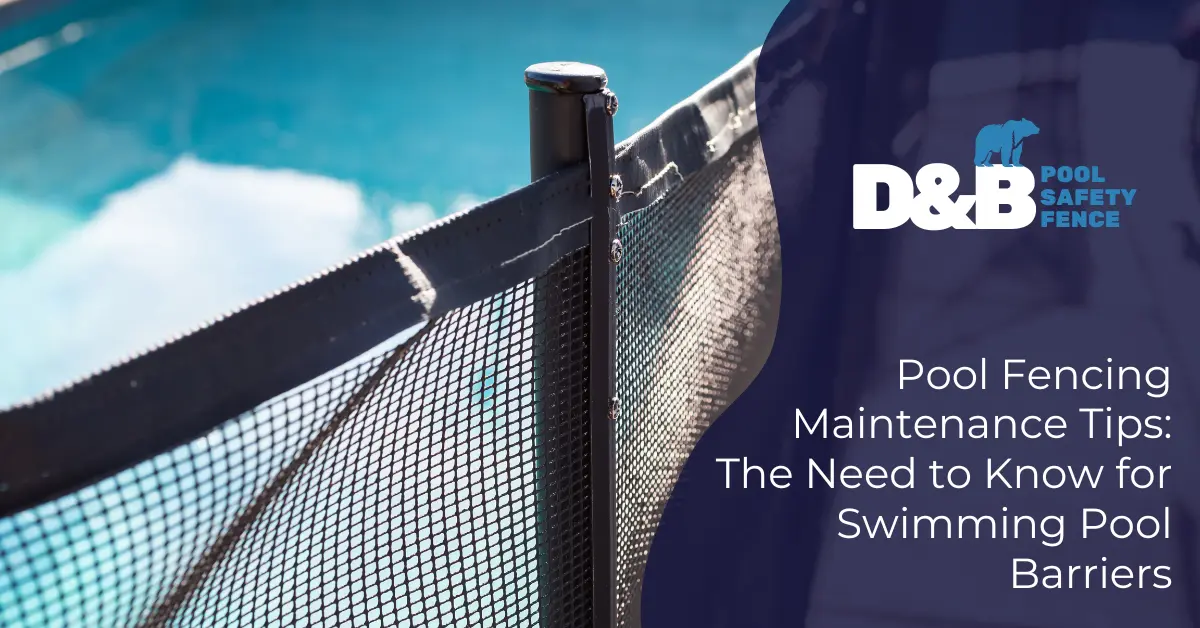Ensuring pool safety is paramount, especially when it comes to swimming pool barriers. This blog delves into the essential aspects of maintaining these barriers to safeguard against potential risks. Throughout this informative guide, readers will gain insights into local regulations, routine maintenance practices, and repair tips. Stay informed on how to enhance pool safety effectively. D&B Pool Safety Fences services in Florida are dedicated to upholding these standards for a secure aquatic environment.
Understanding the Regulations for Swimming Pool Barriers
When it comes to pool fencing, understanding the regulations is essential for maintaining a safe environment. In Florida, specific requirements are in place to ensure that swimming pool barriers meet the necessary standards. By staying informed about these regulations and their implications, pool owners can prioritize safety effectively.
Local and State Requirements for Swimming Pool Barriers
In Florida, the Florida Statutes Chapter 515.29 outline residential swimming pool barrier requirements to prevent unauthorized access. These regulations specify the characteristics and placement of barriers around pools, emphasizing the importance of compliance with safety measures.
Florida-specific regulations
Florida’s Residential Swimming Pool Safety Act, applicable to pools built after October 1, 2000, focuses on reducing drowning incidents by mandating specific safety features for new residential pools. This act underscores the state’s commitment to enhancing pool safety and preventing accidents.
How to stay updated with changes
Staying informed about Florida Swimming Pool Laws is crucial for pool owners to ensure compliance with evolving regulations. These laws aim to uphold pool safety standards and prevent drowning incidents, especially among children. Regularly checking for updates and amendments is vital for maintaining a secure pool environment.
Importance of Pool Fencing Compliance for Safety Gear
Compliance with pool fencing regulations not only has legal implications but also offers significant safety benefits. Understanding the reasons behind these regulations can help emphasize the importance of adhering to them for overall pool safety.
Legal implications
Failing to comply with pool fencing regulations can result in legal consequences due to inadequate safety measures. By following the established guidelines and requirements, pool owners can mitigate risks and create a safer environment for swimmers.
Safety benefits
Adhering to pool fencing regulations provides essential safety benefits by reducing the risk of accidents and unauthorized access. Maintaining compliance ensures that swimming pool barriers function effectively as protective barriers, safeguarding individuals from potential hazards.
Routine Inspection and Maintenance for Swimming Pool Barriers

To ensure the longevity and effectiveness of your pool barrier, regular maintenance is essential. By conducting routine inspections and following proper cleaning practices, you can uphold the safety standards around your swimming pool.
Regular Inspection Checklist for Swimming Pool Barriers
When performing a routine inspection of your pool barrier, it’s crucial to pay attention to specific areas that may indicate wear and tear. By following a comprehensive checklist, you can identify potential issues early on and address them promptly.
Checking for wear and tear
Inspect the structural integrity of the pool barrier, looking for any signs of damage such as rust, loose components, or bent sections. Addressing these issues promptly can prevent further deterioration and maintain the barrier’s effectiveness in safeguarding against accidents.
Ensuring gate functionality
Test the functionality of the gates within your pool barrier to ensure they open and close smoothly without any obstructions. Properly functioning gates are vital for controlling access to the pool area and preventing unauthorized entry, especially by young children.
Cleaning and Upkeep
In addition to regular inspections, proper cleaning and upkeep are essential for preserving the quality of your pool barrier materials. By following simple maintenance practices, you can extend the lifespan of your barrier while enhancing its overall safety features.
Removing debris and dirt
Regularly remove debris such as leaves, branches, or other foreign objects that may accumulate around the pool barrier. Keeping these areas clear not only improves the aesthetics but also prevents potential hazards that could compromise the barrier’s effectiveness.
Preventing rust and corrosion
Inspect metal components of your pool barrier for any signs of rust or corrosion regularly. Applying appropriate treatments or coatings can help protect these elements from environmental factors that may cause deterioration over time. Preventive measures play a crucial role in maintaining a safe and secure pool environment.
Repair and Replacement Tips for Pool Fencing
When it comes to maintaining your pool barrier, being able to identify signs of damage is crucial for ensuring the safety of your swimming pool area. By recognizing common indicators of wear and tear, you can take proactive steps to address any issues promptly.
Identifying When Repairs or Maintenance Are Needed
Common signs of damage that may require immediate attention include visible rust on metal components, loose or broken sections in the barrier structure, and malfunctioning gate closures. These warning signs signal potential hazards that could compromise the effectiveness of your pool barrier in providing adequate protection.
Tools and materials required for basic repairs typically include a screwdriver, pliers, replacement fasteners or screws, rust-resistant paint or coating, and protective gear such as gloves and safety goggles. Having these essential items on hand can facilitate quick fixes and prevent further deterioration of your pool barrier.
DIY vs. Professional Services for Swimming Pool Barriers
Knowing when to seek professional services for more complex repairs or replacements is essential for maintaining the integrity of your pool barrier. While minor issues can often be addressed through DIY efforts, certain situations may require the expertise of experienced professionals.
When to call a professional: If you encounter structural damage beyond minor repairs, electrical issues related to alarm systems or sensors, or significant corrosion affecting the integrity of the barrier, it’s advisable to contact a qualified pool fencing specialist. Seeking professional assistance ensures that repairs are conducted accurately and in compliance with safety standards.
Highlighting D&B Pool Safety Fences services: Companies like D&B Pool Safety Fences offer specialized services for repairing and replacing damaged pool barriers with high-quality materials that meet regulatory standards. Their expertise in pool safety solutions can provide peace of mind knowing that your swimming pool area is secure and well-maintained.
Enhancing Pool Safety and Fence Security

Adding Extra Features
- Alarms and sensors: Installing alarms and sensors on your pool fence can provide an additional layer of security by alerting you to any unauthorized access or potential dangers.
- Child-proof locks: Utilizing child-proof locks on your pool gate ensures that young children cannot easily open the gate and access the pool area unsupervised.
Landscaping Considerations
- Planting around the fence: Carefully selecting and planting foliage around your pool fence can enhance both the aesthetic appeal and safety of your pool area. Choose plants that do not obstruct the view of the pool but still provide a natural barrier.
- Avoiding obstructions: Ensuring that there are no objects or structures near the pool fence that could be used to climb over it is essential for maintaining security. Keep the area around the fence clear to prevent any potential hazards.
Recap essential maintenance tips for pool barriers to ensure lasting safety. Emphasize the significance of regular upkeep in preserving barrier integrity. Contact D&B Pool Safety Fences for expert services in maintaining your pool’s security. Prioritize the safety of your pool area to safeguard against potential risks.






